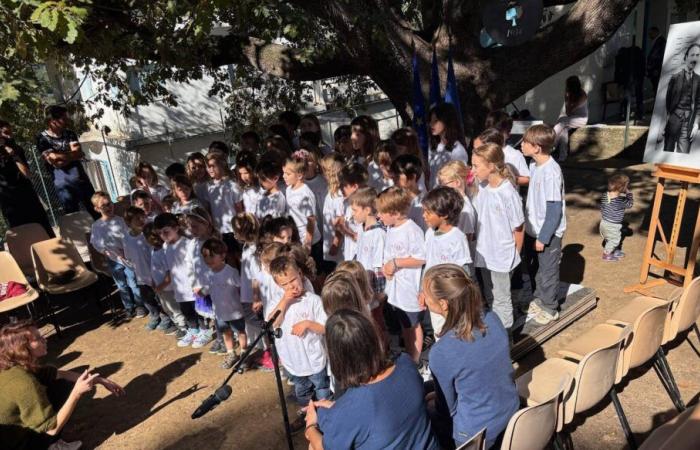
The children return to school this Monday, November 4. The opportunity to highlight a renowned establishment which has just celebrated its 90th anniversary: the Freinet school in Vence.
Here, there is a singular spirit, a soothing environment in an exceptional setting. Who better than Aurélia Levet, its director, to confirm this.
“Here we have the strange impression of not being in a school but in a place designed and thought out as a living place to learn and grow.”
Expelled from the public school of Saint-Paul-de-Vence in 1933 following a conflict with the local extreme right, Célestin Freinet decided to create his own school in 1934 in the Pioulier district of Vence. A project that he is implementing with his wife, Élise.
“Looking at the child”
The duo establishes an innovative pedagogy “which today is anything but outdated, continues the director. It is not defined by a set of techniques but as a philosophy, a vision of society, a view of the child which never reduces him to the simple status of student but which considers him in all his dimension, sensitive , creative, intellectual, social and artistic”.
The school has a history, stories. They were played during a masterful performance by his talented young students to celebrate the 90th anniversary of their haven of peace.
On the stage, we look back at the Spanish Civil War, a period during which the Freinet school welcomed 16 little Spanish refugees. Bouillon de cultures: 26 young French students will learn Spanish.
“Precursor on the question of school rhythms”
Then, the Second World War and the arrest of Célestin Freinet by the French Vichy police, here, in his school.
The establishment will also serve as a refuge for 129 Jews, including 82 children saved from deportation.
The story was brought to the screen in 1939 by Jean-Paul Lechanois, with a synopsis by Elise Freinet and with Bernard Blier in the role of the teacher (1).
“The school and its pedagogy have contributed a lot to national education, underlined Stéphanie Mestre, national education inspector, by promoting psychosocial skills ahead of time to take into account the student's overall day. He was a pioneer on the issue of school rhythms.”
Gilles Vernus, Assistant for Arts and Culture, underlined that “Freinet continues to shake up educational science 48 years after his death: the child learns by doing. He was also attached to a critical and free spirit at a time when the child was relegated to blind obedience.”
“Sacred place, sacred place”
Anne Satonnet, vice-president of the Department, chose to address the children. “I am speaking to you under Papa Freinet's oak tree, it is a sacred place and a sacred place. Adults are not always right, they are often wrong like those who chased Célestin Freinet out of public school. Sometimes in the life, we must not obey everything when we are convinced that it is a bad decision. We must dare to have the courage to say it and carry what we believe.
The Freinet school became public in 1991 while retaining the Freinet pedagogy and then entrusted to the Department in 2005. The establishment will benefit from a rehabilitation in 2027 with a budget estimated at 2 million euros.
Nuggets entrusted to the media library
The Célestin and Élise Freinet media library in Vence will enrich its heritage on the history of Vence. The mayor, Régis Lebigre and Henri-Louis Go, lecturer and scientific coordinator of the Freinet school have just signed a donation agreement from the Freinet fund to the City of Vence. These are unique documents comprising around a hundred albums, letters, texts written by Célestin and Elise Freinet and their daughter Madeleine.
This fund will be entrusted to Claire Veyrat, director of the media library. She will be in charge of its preservation, and will be able to promote it and disseminate it to the public.




